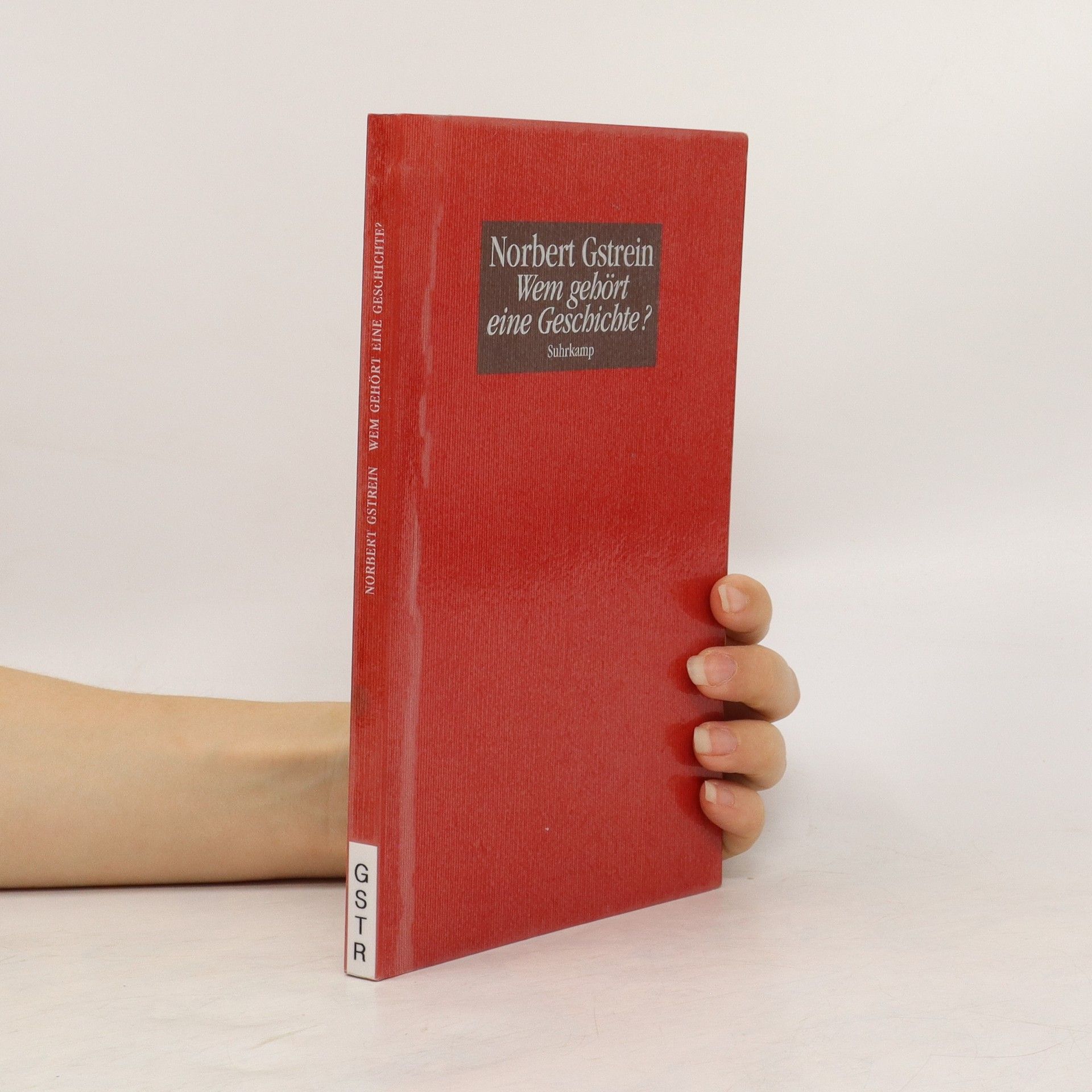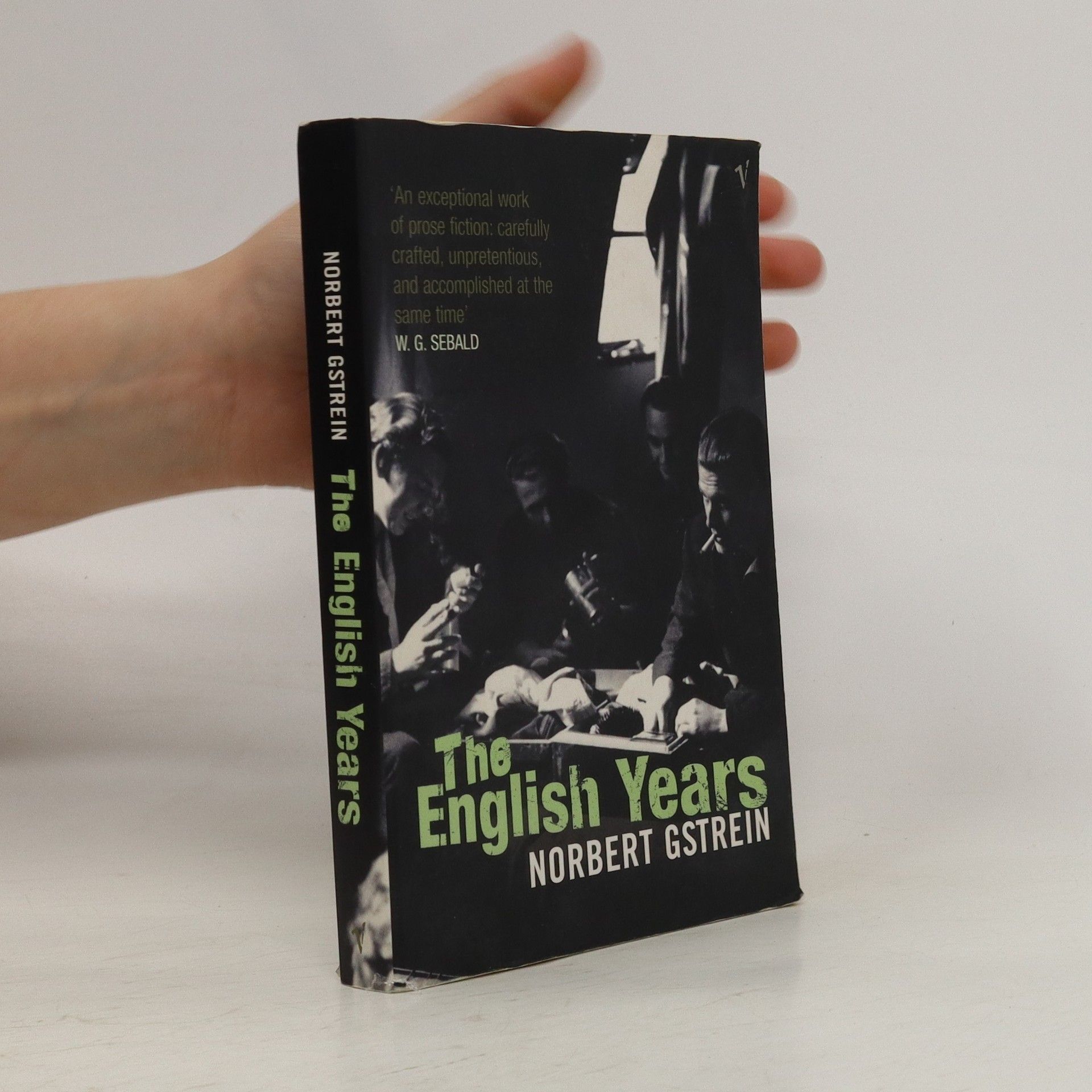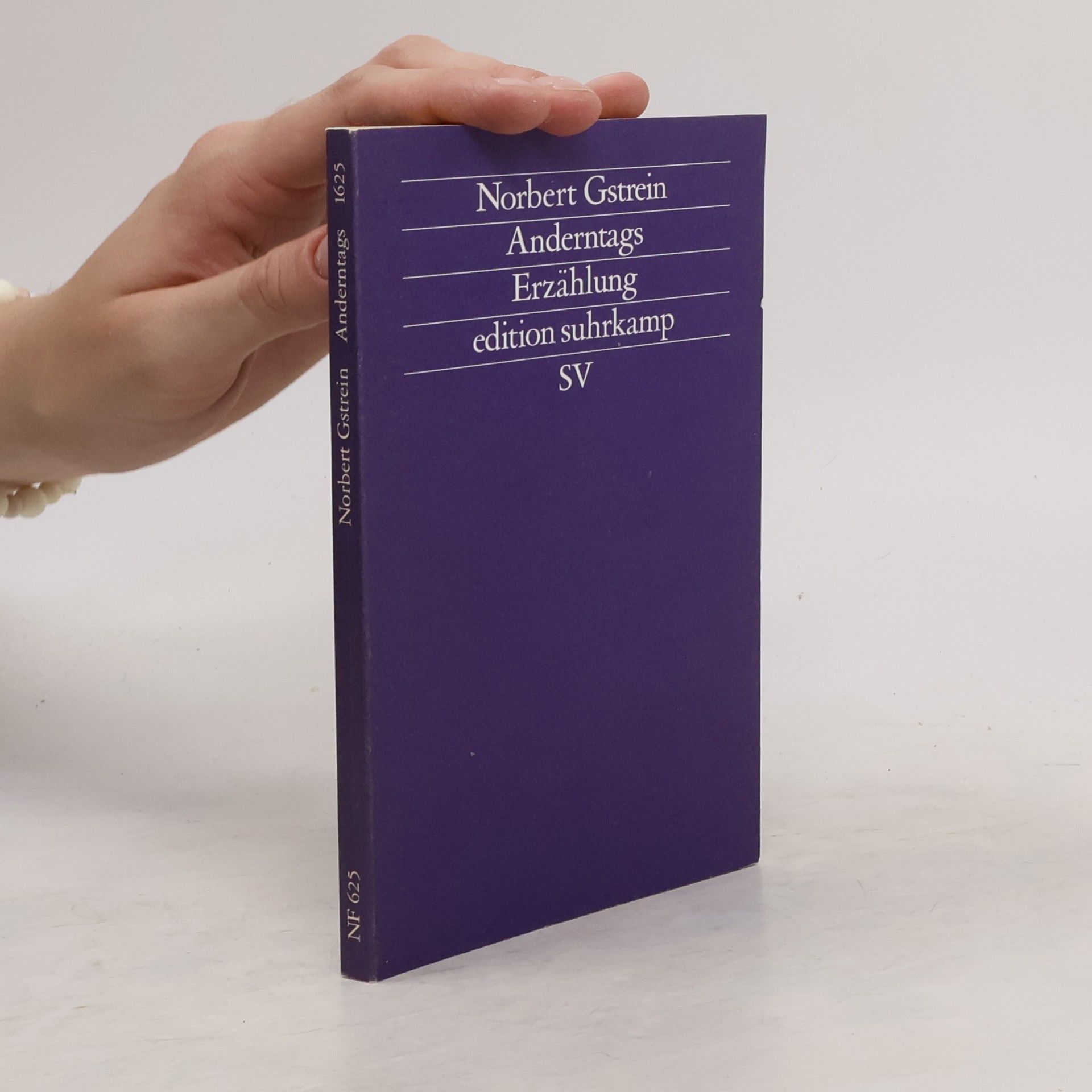Hirschfelder fled Vienna shortly before the war. From London he was sent to an internment camp on the Isle of Man. The friends he made there would change his life forever.
Norbert Gstrein Books
Norbert Gstrein's work delves into the intricate landscapes of the human psyche and the complexities of interpersonal relationships. He masterfully explores themes of identity, memory, and the search for meaning in the contemporary world. Gstrein's prose is precise and evocative, drawing readers into the depths of human experience. His literary contributions offer profound insights into the nature of existence and connection.







Ein Schriftsteller und eine Ärztin. Mann und Frau. Fünf Tage, fünf Kapitel, Montag bis Freitag. Es ist wie eine Versuchsanordnung. Er spricht, und sie ist zum Zuhören gezwungen, eine Zeugin, die erst als Erzählerin seiner Monologe zu Wort kommt.§Fünf Tage ununterbrochenen Regens, in denen er ihre Anläufe, ihm beizubringen, dass eine ihrer Patientinnen sich umgebracht hat, wieder und wieder abwürgt. Fünf Tage, die darin gipfeln, dass kartonweiße seine Bücher geliefert werden, die er aufgekauft hat, damit sie nicht verramscht werden können.§Dabei läuft er zu einer Tirade auf, die sich gegen alles und jeden richtet, gegen den Literaturbetrieb, gegen Schriftstellerkollegen und Kritiker und nicht zuletzt gegen ihn selbst. Es entsteht eine in weit ausschwingenden Sätzen gehaltene, ironische Bestandsaufnahme seiner verfahrenen Situation, die auch zum Entwurf einer Poetik wird und das Psychogramm eines Einzelgängers sichtbar macht.
„Norbert Gstrein ist ein Meister des 'zwielichtigen' Erzählens. Er setzt Zeichen um Zeichen. Man folgt seinem Konstrukt und seinem bewundernswert klaren Satzbau mit Spannung.„ Aus der Jurybegründung zur Verleihung des Österreichischen Buchpreises 2019 Am Anfang ist da nur ein Kuss. Aber gibt es das überhaupt, nur ein Kuss? Franz wächst im hintersten Tirol auf. Er fotografiert Paare “am schönsten Tag ihres Lebens", bis bei einer Hochzeitsfeier die Braut ums Leben kommt. Was hat das mit ihm zu tun? Was damit, dass er nur Wochen zuvor am selben Ort ein Mädchen geküsst hat? Vor diesen Fragen flieht er bis nach Amerika. Doch dann stirbt auch dort jemand: ein Freund, in dessen Leben sich ebenfalls mögliche Gewalt und mögliche Unschuld die Waage halten. Was wissen wir von den anderen? Was von uns selbst? Hungrig nach Leben und sehnsüchtig nach Glück findet sich Franz in Norbert Gstreins Roman auf Wegen, bei denen alle Gewissheiten fraglich werden.
O2
- 172 pages
- 7 hours of reading
Norbert Gstrein greift in seiner Novelle O2, ein historisches Ereig nis auf, den Ballon-Forschungsflug des Schweizer Physikprofessors Auguste Piccard, der am 27. Mai 1931 zu einer ehrgeizigen Exkursion in die Stratosphäre, in 16 000 m Höhe, aufgebrochen ist.
In der Luft
Drei lange Erzählungen
Erstmals in einem Band: Norbert Gstreins drei lange Erzählungen Norbert Gstrein erzählt von drei Außenseitern: von der zunehmenden Entfremdung Jakobs im Internat und in einem ganz auf den Tourismus ausgerichteten Wintersportort in den Alpen, von dem Physiker Auguste Piccard und seinem Höhenflugrekord mit einem Fesselballon im Jahre 1931 und von einem eigensinnigen Schriftsteller, der im Gespräch mit einer Ärztin jeden Halt verliert. Drei Einzelgänger, die sich nicht in der Welt einzurichten vermögen und gegen die Wirklichkeit anrennen oder sich auf ihre Weise, und sei es buchstäblich in der Luft, ihre eigene Wirklichkeit erschaffen.
Das Register
- 299 pages
- 11 hours of reading
1992 veröffentlichte Norbert Gstrein den Roman Das Register, vorabgedruckt in der Frankfurter Allgemeinen Zeitung: ein Buch der Erinnerung, ein "Rechnungsbuch" des gelebten und des ungelebten, des geglückten und des ungeglückten Lebens der Brüder Vinzenz und Moritz. Am Vorabend der Hochzeit Magdas, der einst geteilten Freundin, gerät der Besuch bei der Schwester den Brüdern fast zum Verhör. Bohrenden Fragen und Verdächtigungen ausgesetzt, bringen sie verschwiegene Erinnerungen zur Sprache: Familiengeschichten, Episoden aus der Kinder- und Jugendzeit, die Etappen des Erwachsenwerdens, erste Erfolge - und immer wieder die Fragen nach Magda und dem eigenen Leben: Gab es da eine Schuld?
Anderntags
- 116 pages
- 5 hours of reading
Norbert Gstreins zweite Prosaveröffentlichung Anderntags erzählt von Scheitern und Schuld, von stummer Mutlosigkeit, langem Abschied und der Lügenhaftigkeit menschlicher Beziehungen.
Nach seinem gefeierten Roman »Als ich jung war« – Norbert Gstreins atemberaubendes Buch über die Abgründe der Menschheit. Auf der Shortlist des Deutschen Buchpreises 2021 Jakob ist ein bekannter Schauspieler, ein Verlag plant eine Biografie über ihn, doch ihn graust es vor dem Kommenden. Da stellt ihm seine Tochter die Frage, die alles sprengt: »Was ist das Schlimmste, das du je getan hast?« Jakob erinnert sich an einen Filmdreh an der mexikanisch-amerikanischen Grenze. Die Morde an Frauen und das Elend dort bekam er bloß distanziert mit – aber zwei Mal war er plötzlich mittendrin. Er schämt sich, ringt mit den simplen Urteilen der Welt und sehnt sich in gleißenden Erinnerungen nach dem Glück. Warum ist er kein Original, sondern stets nur „der zweite Jakob“? »Heimat, Identität, Schuld und das Spiel mit der Autofiktion – es sind Gstreins gewohnte Themen, die er im jüngsten Roman mit erzählerischer Brillanz aufgreift. ... Der Versuch, ein ganzes Leben in Worte zu fassen, kann nur ein Versuch bleiben. Im Fall von ›Der zweite Jakob‹ ist er geglückt.« 3sat Kulturzeit
Den österreichischen Ehrentitel Kommerzialrat trägt der stattliche Alois Marsoner mit sichtbarem Stolz; sämtliche Ämter in einem Bergdorf, in dem es nach einer Serie von Anschlägen auf Schitouristen drunter und drüber geht, sind in seiner Person vereint: ein Sechzigjähriger, ein Mann mit Eigenschaften, ein ganzer Kerl. Mit dem plötzlichen Auftreten eines 'Provinzcasanovas' ändert sich für den geschätzten 'Mann der Tat' sein gewohntes Leben. Zwischen dem Fremden, wegen seiner Heimat 'Steirer' genannt, und ihm entwickelt sich eine geheime Rivalität, auch um seine beiden Töchter Therese und Sophie.§Das ist der Beginn einer Geschichte, die alle Zutaten einer Kriminalgeschichte hat und in ihrer Konstruktion an die 'Chronik eines angekündigten Todes' von Gabriel Garcia Marquez erinnert: 'Hier wie dort wird von einer Dorfgemeinschaft, sehendes Auges, ein Mensch geopfert... Es geht bei beiden zuletzt um Schuld. Um jene Form der Schuld, mit der die Figuren Kafkas allesamt geschlagen sind: die unausweichliche. Die Genauigkeit, mit der Gstrein ausgespart hat, was sich keiner Erklärung fügt, ist bewundernswert. (Martin Lüdke, Frankfurter Rundschau)



